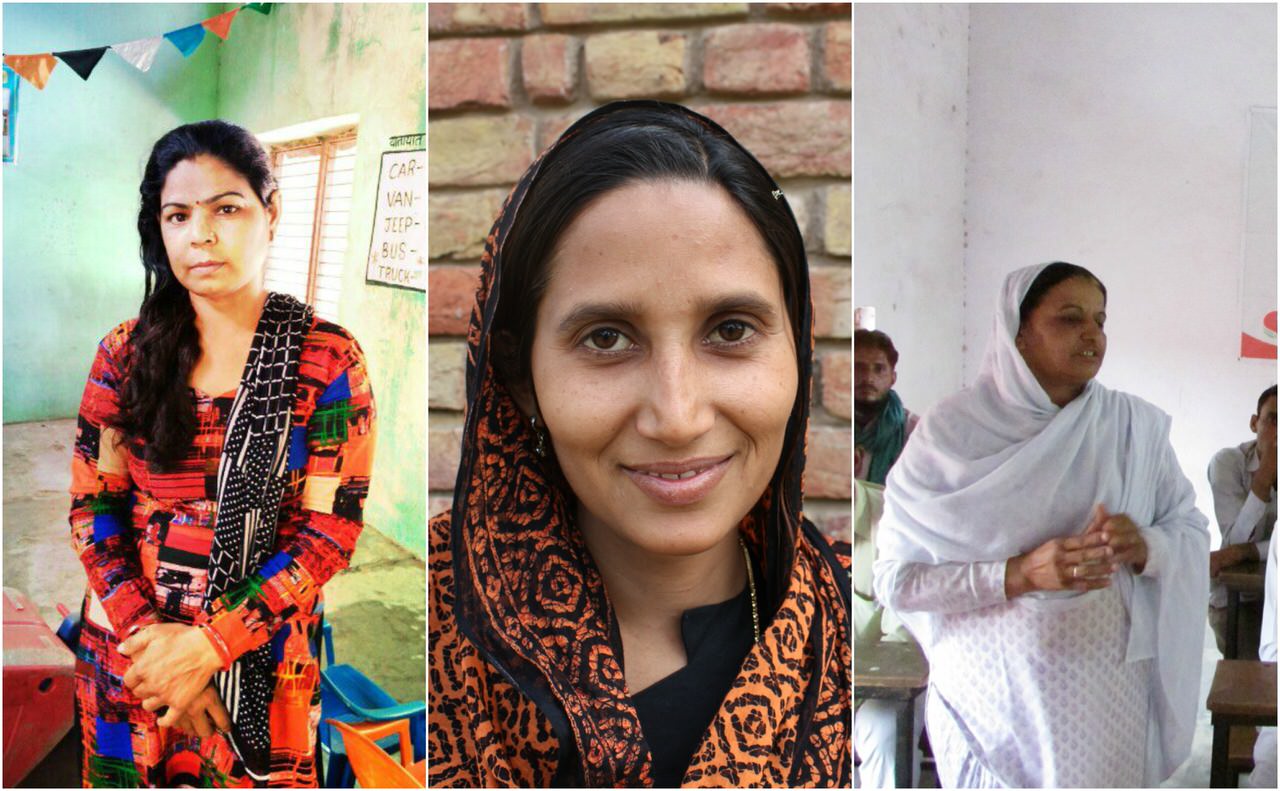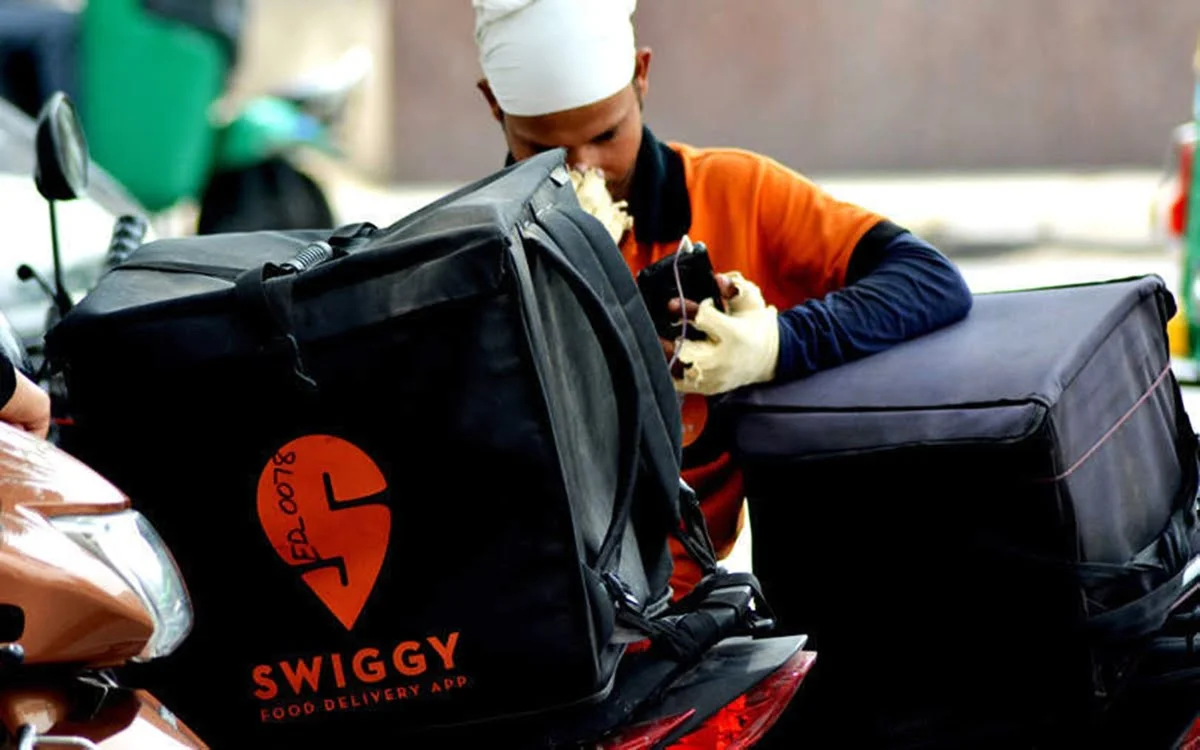These are the stories of three women who work on the grassroots level in a community building capacity, as a part of the Sehgal Foundation. Communities that are located far away from the privileged spaces that are urban areas. Upon working their way through various obstacles related to family expectations, health, education, employment, etc., these three women have had a significant part to play in the advent and promotion of rural development in their respective communities.
Shaheen Khatoon
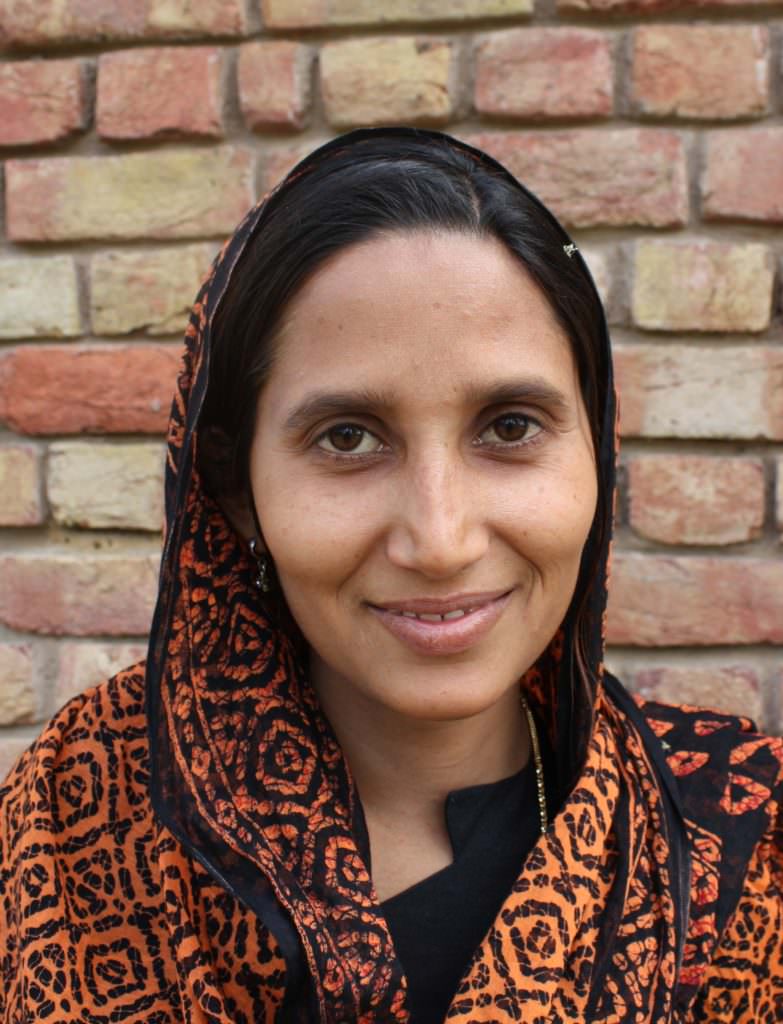
Shaheen Khatoon, Community Capacity Builder and Coordinator, Firozpur/Jhirka, is the youngest of five sisters – in a family that had desperately longed for a son. Hence, it came as no surprise that her birth was received with dismay, and her childhood ‘bore the stamp’ of ‘The Unwanted One’. Though her destiny led her to Delhi for studies, she was sent-off in marriage soon after she completed the tenth standard. However, having a supportive husband came as a boon to Shaheen: not only was she able to continue her studies right up to graduation, but she was also encouraged to use her skills in a job.
Starting her journey as an instructor, imparting tailoring skills at the foundation, she moved on to another domain – health. This was a huge leap, as this assignment encouraged her to shoulder more responsibilities by ‘managing’ the health projects at the district level. Shaheen’s current assignment sees her overseeing the work in diverse domains: namely Panchayat, Health and Education.
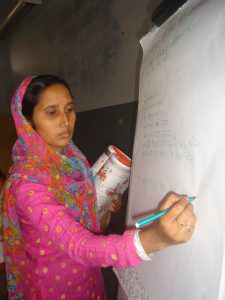 Explaining her multi-faceted roles, she emphasizes on her role in ‘governance’: “Mahila Gram Sabhas are held four times a year. This concept is vital for providing women a platform to voice their concerns, something that they may be hesitant to do in the ‘general’ Gram Sabhas. These Mahila Gram Sabhas are held for two days, immediately before the Gram Sabhas, so that issues which are raised during these, can be presented during the latter, in order to highlight challenges faced by women like for example in the fields of health, water, sanitation etc.
Explaining her multi-faceted roles, she emphasizes on her role in ‘governance’: “Mahila Gram Sabhas are held four times a year. This concept is vital for providing women a platform to voice their concerns, something that they may be hesitant to do in the ‘general’ Gram Sabhas. These Mahila Gram Sabhas are held for two days, immediately before the Gram Sabhas, so that issues which are raised during these, can be presented during the latter, in order to highlight challenges faced by women like for example in the fields of health, water, sanitation etc.
This platform also prepares the stage for micro-planning, where the demographics of the concerned village are reviewed. Issues of concern are discussed here and then presented in front of the Gram Sabha, from where the matter is further referred to the concerned higher authorities, if so deemed required.”
 The success stories which Shaheen lists are many: construction of an ‘Anganwadi’ centre, clean drinking water facilities, improved sanitation and many more; but the journey has not been easy. “In 2004, when I started my assignment, there was hardly any accessible mode of transport, because of which walking was the only choice, and that too walking for long distances. Besides this, there were other social challenges too, which I had to face. However, in 2009 I was awarded the Achiever’s Award by the Sehgal Foundation and in 2015/16, the Best Social Worker – Mewat (in the health domain)”.
The success stories which Shaheen lists are many: construction of an ‘Anganwadi’ centre, clean drinking water facilities, improved sanitation and many more; but the journey has not been easy. “In 2004, when I started my assignment, there was hardly any accessible mode of transport, because of which walking was the only choice, and that too walking for long distances. Besides this, there were other social challenges too, which I had to face. However, in 2009 I was awarded the Achiever’s Award by the Sehgal Foundation and in 2015/16, the Best Social Worker – Mewat (in the health domain)”.
Sushil Bala
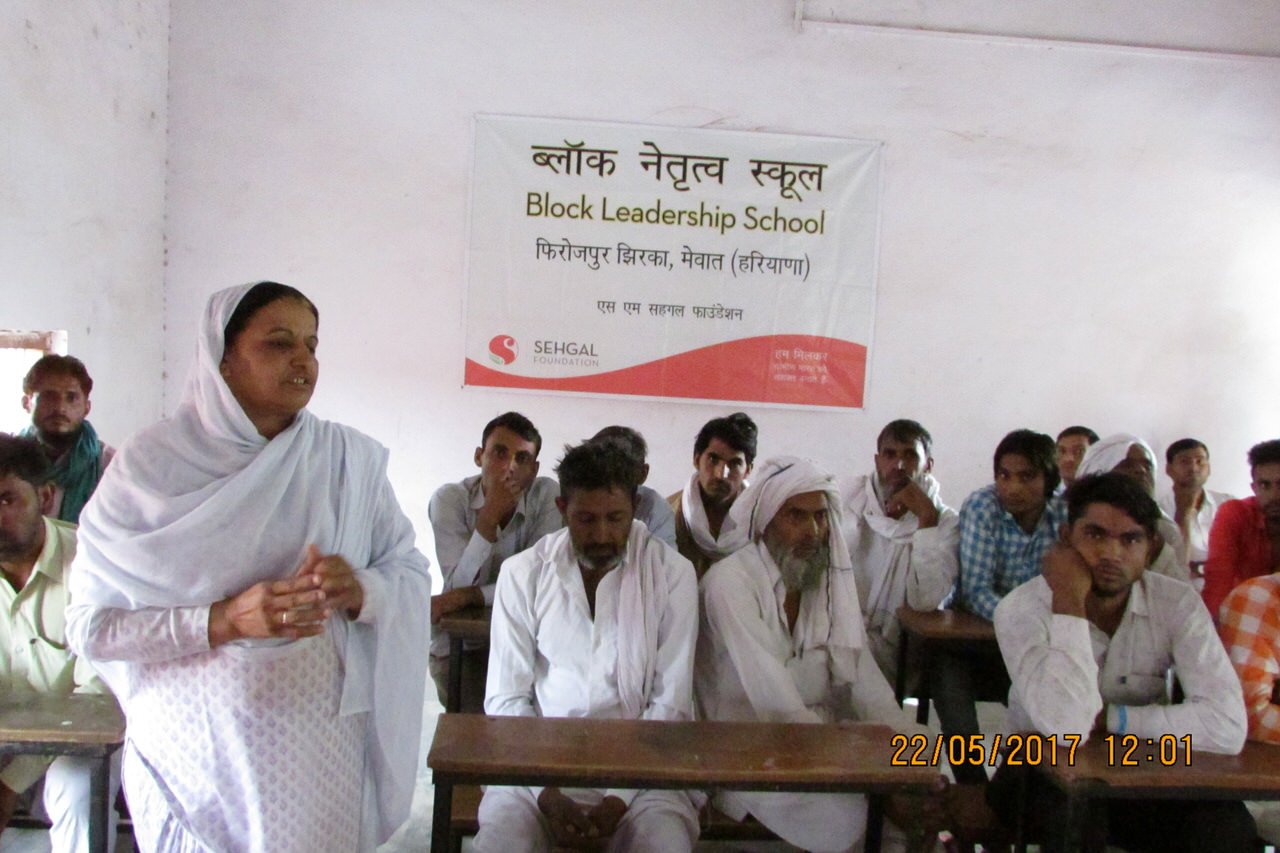
Armed with a degree in arts and crafts (ITI), this versatile lady took up the challenge of educating, guiding and ‘grooming’ young girls. She has been on numerous journeys, time and again, with each young girl, from the imparting of alphabets till the time a career path was carved out for them.
She says with a sense of both pride and gratitude “Salary is one thing, but the joy and satisfaction one receives in the form of blessings is irreplaceable and unforgettable”. From basic education to subjects like environment, governance, creative arts and crafts and many other fields, which are vital for a holistic education have been covered as much as possible – the key word remaining creativity and dedication.
Also Read: Meet the Women Behind #DalitWomenFight Trying to Take Down ‘Caste Apartheid’
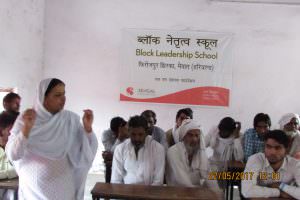 The trust these young girls place in her, she says, is her true treasure: “Children treat me like their mother. They confide in me. We find solutions to problems, together. Many times, parents come to me, requesting me to help with the guidance of their wards. I feel it is the bond that is formed over the years that builds this kind of a relationship”.
The trust these young girls place in her, she says, is her true treasure: “Children treat me like their mother. They confide in me. We find solutions to problems, together. Many times, parents come to me, requesting me to help with the guidance of their wards. I feel it is the bond that is formed over the years that builds this kind of a relationship”.
Sushila cites the dowry system as an ongoing menace, though she says the count of child marriages has reduced. Gender sensitization has resulted in a drop in gender bias, which she feels is of utmost importance for a progressive society.
Her next steps of action? With a smile, she answers promptly “I want to learn MS Excel in a bit more of detail. The foundation has played a major role in sculpting me as a person. I even drive a Scooty”, she laughingly adds.
Rajni Sharma
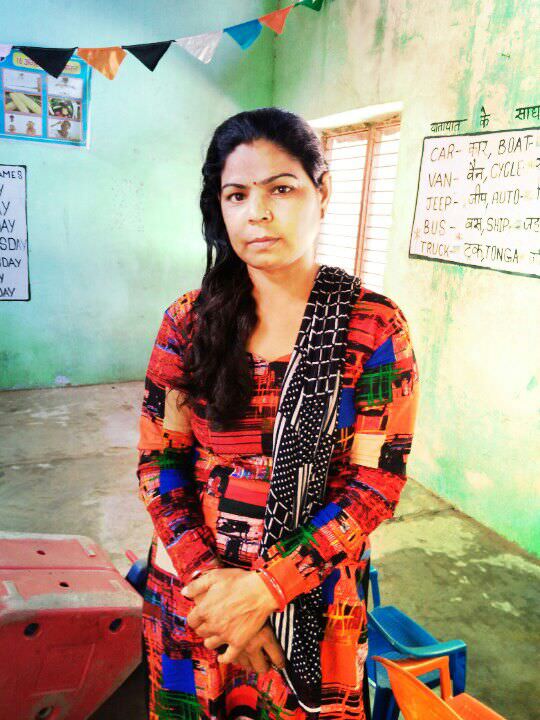
Rajni Sharma works with a non-government organization Sehgal Foundation in the capacity of a block coordinator of a village in Taoru block of Nuh district in Haryana. Talking about her journey, she begins by saying “I learnt tailoring before marriage, but never really thought that I could apply it for the benefit of the community”.
She goes on to explain how girls in the village at that time would attend school, chiefly, because of the tailoring session that was ‘added’ to the main curriculum, post school hours. “We need to spread awareness about the importance of education. Parents still prefer girls to engage in household chores over studying. I have always tried to advocate about educating girls because if they are not educated, they cannot develop, and then how can a society witness development? It is as simple as that,” she adds with emphasis.
Rajni’s work in the field of women empowerment, through the medium of education, has yielded rich dividends for everyone involved. The girls, who attend school, learn about diverse subjects and also get exposed to skills such as tailoring that is integrated into the mainstream education.
 Rajni has two daughters and a son. All her children go to a private school and she has to work hard to ensure that their education continues smoothly. She recalls the time when her elder daughter struggled with her class XII exams and was on the verge of dropping out, but she encouraged her to continue her studies despite her family and husband raising questions. “Many a times my husband questions me on why I send the girls to school, but I am adamant. I explain the very simple logic that all trees take their own time to grow and bear fruits; it is similar with children, I feel. We, as parents, try and ensure that they have access to all that life can offer, most importantly, education”.
Rajni has two daughters and a son. All her children go to a private school and she has to work hard to ensure that their education continues smoothly. She recalls the time when her elder daughter struggled with her class XII exams and was on the verge of dropping out, but she encouraged her to continue her studies despite her family and husband raising questions. “Many a times my husband questions me on why I send the girls to school, but I am adamant. I explain the very simple logic that all trees take their own time to grow and bear fruits; it is similar with children, I feel. We, as parents, try and ensure that they have access to all that life can offer, most importantly, education”.
What are her expectations from the future? “The step-by-step or brick-by-brick approach helps build a concrete ‘structure’ that can withstand all odds. Something similar is what I believe in. I remember the time when I had to walk for long distances, struggle to reach on time and even had to listen to jibes from family members regarding my work.
I have come a long way in my own empowerment and others. Seeing me taking charge of family affairs and guiding my children for a better future, slowly my family has started appreciating what I do, as they can understand the difference that my work has brought to my life and to people’s lives. What more can I ask for?”
Also Read: Meet Iqra Rasool: The Young Pace Bowler From Kashmir With Big Dreams
About the author(s)
S M Sehgal Foundation (Sehgal Foundation) is a public, charitable trust registered in India since 1999. Our mission is to strengthen community-led development initiatives to achieve positive social, economic, and environmental change across rural India. We envision every person across rural India empowered to lead a more secure, prosperous, and dignified life. With support from donors and partners, we design and promote rural development interventions that create opportunities, build resilience, and provide solutions to some of the most pressings challenges in India's poorest communities.
Together with rural communities, we create sustainable programs for managing water resources, increasing agricultural productivity, and strengthening rural governance. The team's emphasis on gender equality and women's empowerment is driven by the realization that human rights are central to developing every person's potential.
